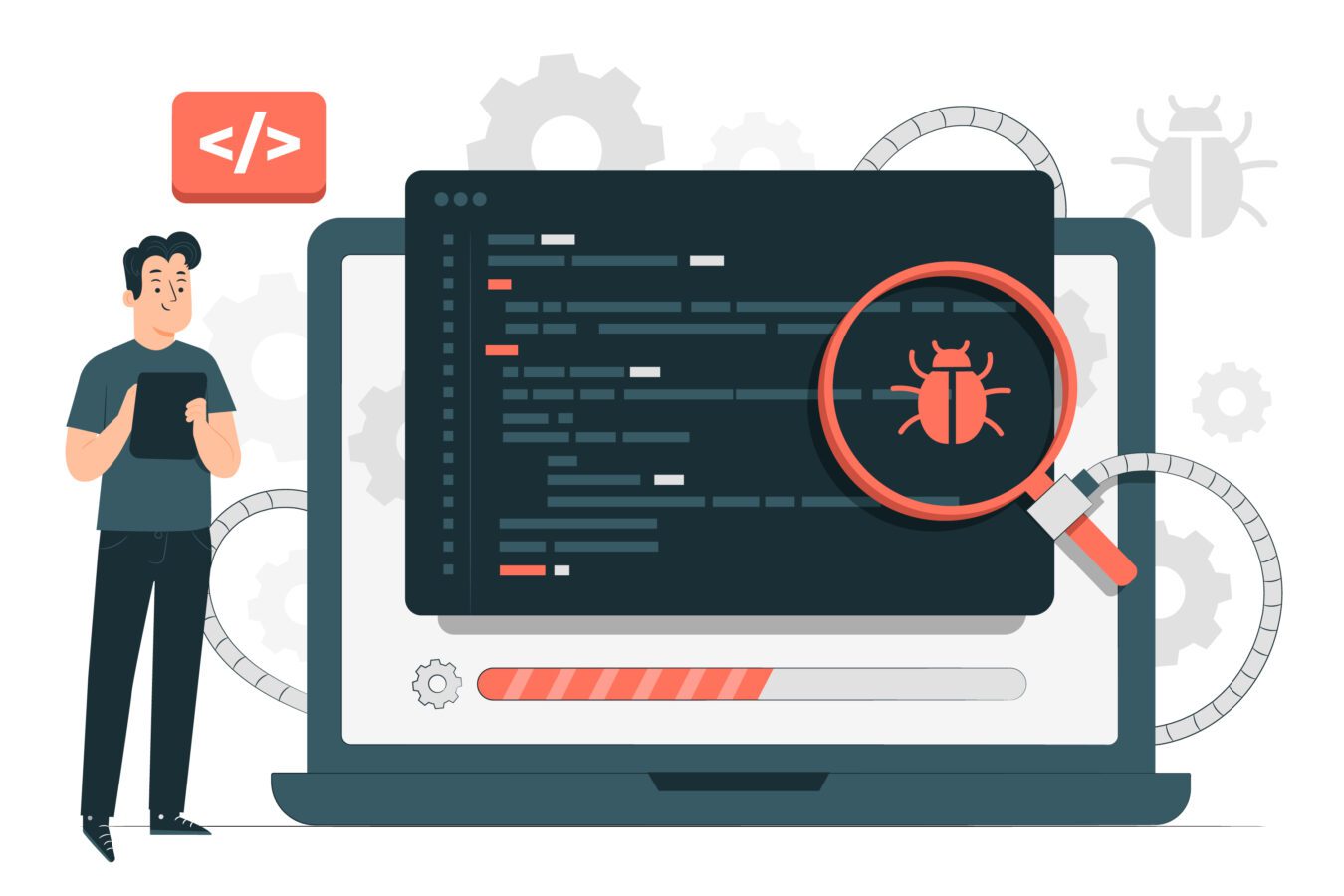Ensuring all the aspects of security is a difficult and arduous task. With so many factors involved and hackers getting so intelligent and innovative, there are scores of ways to break a website or application.
Similarly, when it comes to Express.js applications, there is no single procedure or step to ensure that your web application won’t be impacted by a cyber-attack. To guide the readers, this blog encompasses the best practices to address the concern of security threats.
Best Practices to enhance the security of Express.js applications – Easy methods
While it is not possible to cover each and every security flaw and vulnerability that exists within an Express.js application, here I have presented a list of methods that can potentially help you thwart cyber-attacks:
1. Invest in SSL certifications
An SSL certificate encrypts data between the user’s browser and the Express.js server, ensuring secure data transmission. Implement SSL by purchasing a certificate from a trusted Certificate Authority (CA) and configuring your server to use HTTPS/TLS.
This step is considered crucial to preventing man-in-the-middle attacks and assuring users that your application is trustworthy.
2. Run tests to detect existing vulnerabilities
Regular vulnerability testing, using tools such as OWASP ZAP or Node.js security platform npm packages, can help identify weaknesses in your Express.js application. Automated tests simulate attacks and assess your app for known vulnerabilities. By proactively detecting and fixing these issues, you can prevent actual exploits and strengthen your application’s defenses.
3. Prevent uncaught exceptions
Uncaught exceptions can crash your Express.js application, making it vulnerable to DOS attacks. Handle exceptions using proper error-handling middleware, and use process managers like PM2 to restart the app automatically if it crashes. This maintains the app’s availability and prevents unscheduled downtimes due to unhandled errors.
4. Use properly formed regular expressions
Poorly written regular expressions can lead to Regular Expression Denial of Service (ReDoS) attacks. Craft expressions that avoid backtracking and test them against various input patterns to ensure they’re efficient. By using non-greedy quantifiers and avoiding capturing groups unnecessarily, you protect your app from getting overwhelmed by complex patterns, thus preventing potential ReDoS issues.
5. Set a limit for the total number of requests
Imagine a scenario where scores of requests are sent by the user, ultimately resulting in your application crashing. That’s why it is important to implement rate limiting using middleware like express-rate-limit to control the number of requests a user can make in a given time frame.
This helps mitigate brute force attacks and DOS attacks by reducing the server load and ensuring service availability for all users.
6. Sanitize user input
User input validation and sanitization by leveraging libraries like “express-validator” or “sanitize-html” prevents injection attacks. By validating and cleaning all incoming data, you ensure that malicious scripts are not executed on the server or other users’ browsers, thereby maintaining the integrity of the application.
7. Utilize the latest version of Express.js
Using the latest version of Express.js ensures that you have the most recent security patches and updates. Therefore, as a developer, you should regularly update your dependencies and monitor the release notes for any security advisories. This keeps your application safe from vulnerabilities found in older versions.
8. Control user access
Implement role-based access control (RBAC) to manage what resources a user can access and what actions they can perform. By defining user roles and permissions, you prevent unauthorized access and potential breaches, ensuring that users can only interact with parts of the application they are permitted to.
9. Introduce frequent updates and modifications
Frequently updating and modifying your application’s codebase can thwart attackers. To make it more difficult for threat actors to exploit your application, it is recommended to frequently change session management keys, update passwords, and alter access tokens.
It’s also pertinent to keep third-party packages updated to protect against newly discovered vulnerabilities.
Major Express.js security threats developers must know
Just like other development frameworks and kits, Express.js is also prone to cyber-attacks. Generally considered less secure than Nest.js, Express.js has faced a number of security issues directly linked to this framework or its dependencies.
Given that Express.js plays a crucial role in the widely used MERN Stack, it is important to underscore the security threats this framework faces.
1. Path traversal vulnerability
Path Traversal Vulnerability exposes Express.js applications to unauthorized file access. Attackers can exploit this to read, modify, or delete files on the server by manipulating the file paths in the request, potentially accessing sensitive areas of the file system. This can eventually result in a complete system takeover, data breaches, or loss of sensitive information, making it a critical vulnerability to address.
2. DOS attack
A Denial of Service (DOS) Attack can cripple an Express.js application by overwhelming it with a flood of network traffic or requests. This can exhaust system resources, causing the app to slow down or crash, denying legitimate users access.
The impact can be severe, ranging from temporary service disruption to long-term damage to an organization’s reputation and financial loss due to downtime. This is why implementing necessary measures and following secure coding conventions is pertinent to prevent such a scenario.
3. DNS spoofing
DNS Spoofing, also known as DNS cache poisoning, involves altering DNS records to redirect traffic from a legitimate server to a malicious one. For Express.js applications, this means users could be unknowingly sent to fraudulent sites that can steal sensitive data.
Such an attack is particularly dangerous because it compromises the trust in domain names, a foundational element of internet security.
4. Remote code execution vulnerability
This deadly vulnerability in Express.js applications allows attackers to run arbitrary code on the server. This can lead to unauthorized access, data theft, and control over the server, posing a severe security risk.
The extent of the damage depends on the privileges of the application on the server, potentially granting full control to the attacker.
5. Prototype pollution vulnerability
Prototype Pollution Vulnerability affects the underlying JavaScript engine of Express.js by allowing attackers to manipulate the prototype of a base object. This could lead to various security issues, such as denial of service, application logic corruption, and, in some cases, remote code execution.
Such vulnerabilities can have a wide-ranging impact due to the central role of objects in JavaScript applications.
Importance of prioritizing security in Express.js applications
Security in Express.js applications isn’t just an optional layer; it’s a fundamental aspect that requires proactive strategies. As web applications become increasingly integral to business operations, they also become prime targets for cyber-attacks. Here are some of the advantages that make ensuring security in Express.js applications a pivotal part of the development stage:
1. User trust and data protection
The most valuable asset in the digital age is data. Users entrust their personal and sensitive information to web applications with the expectation of privacy and security. Any breach that results in leaked user data can lead to loss of trust, legal consequences, and substantial financial damage.
By prioritizing security in Express.js applications, developers can safeguard user data against unauthorized access and exploitation, ensuring not only user authentication and authorization but also compliance with data protection regulations like GDPR.
2. System availability and business continuity
Needless to say, a secure Express.js application is also a reliable one. Attacks such as Denial of Service (DOS) can severely impact an application’s availability, leading to significant downtimes.
Such interruptions not only affect the user experience but also disrupt business continuity. Investing in security measures, like rate limiting and robust error handling, ensures that the system remains available and operational, maintaining the flow of business processes and services.
3. Intellectual property and competitive edge
Security measures protect the intellectual property embedded within the application, including proprietary algorithms, business logic, and other trade secrets. A lapse in security could expose these assets, eroding a company’s competitive edge.
This is why prioritizing security in Express.js development shields these assets from malicious entities, especially threat actors, who could otherwise exploit vulnerabilities to gain invaluable insights into business operations.
4. Adapting to an evolving threat landscape
Cyber threats are constantly evolving, becoming more sophisticated over time. By prioritizing security, your Express.js application will be better equipped to adapt to new threats as they emerge. Regular updates, security audits, and the integration of best practices into the development lifecycle create a robust framework that can evolve with the threat landscape.
5. Cost-effective strategy
While implementing security measures does require an upfront investment, it is far more cost-effective than the potential costs associated with a security breach. The expenses related to incident response, legal fees, compensations, and loss of business can far exceed the costs of preventive measures.
This means the cost of measures implemented post-security breaches is far greater than preventive strategies. Hence, by prioritizing security, businesses can avoid these financial pitfalls and ensure long-term savings.
Choose Ropstam Solutions for your next express.js-based project
Ensuring the robust security of an Express.js application goes a long way toward the success of your project. From well-formed regular expressions to sanitizing user input and running tests to prevent uncaught exceptions, there are certain principles you can adhere to in order to ensure that the developed web application doesn’t eventually become the target of threat actors.
With a number of accomplished Express.js developers and years of experience in the field of web application development, Ropstam Solutions boasts an impeccable record in the region. Over the years, we have delivered countless projects to our satisfied clients. If you are looking for a team of experts to deliver your web application, get in touch with us today!













